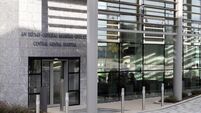Churches’ plea on devolution: Go the extra mile for Stormont

This Christmas holiday offers to the leaders of the political parties in the North a valuable opportunity for calm and constructive reflection on the political landscape after the Brexit vote and this month’s general election, and crucially the contribution each of them — without exception — can make to break the deadlock that has kept the devolved administration in a twilight zone and Stormont closed since January 2017. If ever there were a message — and a plea — to be heeded after three years of the blame game, it is the one issued this week by the principal Churches south and north of the border.
In a powerful collaborative statement signed by representatives of the Roman Catholic Church, the Church of Ireland, the Methodists, Presbyterians, and the Irish Council of Churches, the politicians are asked to work “creatively and courageously” for an agreement that will see the end of a dispute that has damaged health and education services. The North has seen the first strike in the 103-year-old history of the Royal College of Nursing. It has some of the worst-performing A&E units in the UK. The Stormont shutdown, along with the understandable reluctance of British governments to re-impose direct rule, has cost jobs, too. Confidence in the future of the Good Friday Agreement has been bruised badly, if not yet completely broken.
















